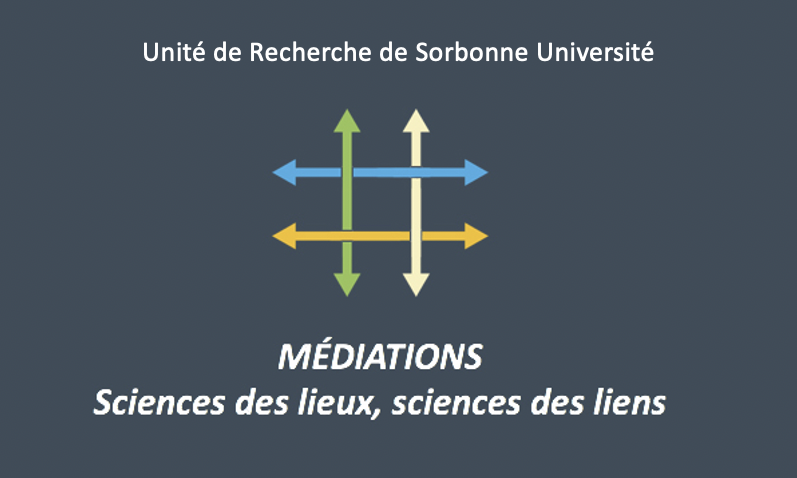A Minority, Urban, and Cosmopolitan Group From an International Migration in Colonial Context: Spatialities and Identities of the Indians of Antananarivo, Madagascar
Résumé
Antananarivo's Indians, though very few in number and representing a tiny minority of the urban population of Madagascar's capital, are an original social group descending from a long-standing migration throughout the Indian Ocean in a colonial context. Although they have been living in the city for several generations, they are still considered foreigners by local society and are subject to considerable stigmatization, even though they often occupy dominant social positions in terms of standard of living. They form a heterogeneous group, but one that is constituted towards the outside world, based on an asserted Indian identity, but also on local and international links.
Thinking in terms of cosmopolitanism for this group allows us to consider both their urban spatial anchorage and their international circulations in an open, globalized world. On the scale of Antananarivo, Indians are developing an original urban insertion, contributing through their presence to the city's cosmopolitanism, even if this is rarely recognized and is often devalued. This participation to urban citiness is studied throughout leisure places and cultural venues run by Indians. On an international scale, many of these people develop multiple identities, ambiguously turned towards contemporary India, and above all towards France due to the colonial past and close islands, the whole functioning in a reticular manner. The Indians of Madagascar, though numerically very marginal, synthesize in their identities, multiple and variable according to place and time, many of the situations that characterize the contemporary world: postcolonial, diasporic, minority and cosmopolitan all at once.
Bien que très peu nombreux et ne constituant qu’une infime minorité de la population urbaine de la capitale de Madagascar, les Indiens d’Antananarivo forment un groupe social original issu d’une migration ancienne dans le cadre colonial de l’océan Indien. Installés depuis plusieurs générations en ville, ils sont pourtant considérés comme étrangers par la société locale et font l’objet d’une stigmatisation importante, alors même qu’ils occupent des positions sociales souvent dominantes en termes de niveau de vie. Ils forment un groupe hétérogène mais constitué envers l’extérieur, fondé sur une identité indienne revendiquée mais aussi sur des ancrages locaux et internationaux, dont la France en raison de liens étroits liés au passé colonial.
La réflexion en termes de cosmopolitisme pour ce groupe permet de penser à la fois leur ancrage spatial urbain et leurs circulations internationales dans un monde ouvert et globalisé. A l’échelle d’Antananarivo, les Indiens développent une insertion urbaine originale, contribuant par leur présence au cosmopolitisme de la ville, même si celui-ci est rarement reconnu et est souvent dévalorisé. Il s’agit notamment de lieux de sociabilité ou culturels tenus par des Indiens, qui seront étudiés. A l’échelle internationale, nombre de ces personnes développent des identités multiples, tournées de manière ambiguë vers l’Inde contemporaine, et surtout vers la France et l’île de la Réunion, et d’autres, l’ensemble fonctionnant de manière réticulaire. Les Indiens d’Antananarivo circulent de manière fluide entre ces territoires et intègrent dans leur vie quotidienne des références à l’ensemble d’entre eux, y compris dans leurs espaces domestiques ou par exemple dans leurs choix de lieux d’inhumation. De par leur insertion urbaine à Antananarivo, même délégitimée par la majorité locale d’une part et de par leurs circulations transnationales d’autre part, il s’agit d’un groupe cosmopolite en situation de diaspora partielle.
L’article s’appuie sur des travaux de terrain de nature ethnographique menés à Antananarivo et à Paris, dans une perspective de géographie sociale et culturelle, ancrée dans le champ des études diasporiques et de celles consacrées aux pays dits du Sud.
Fichier principal
 Fournet-Guérin_Paper Migrating Minds_Urban cosmopolitanism Indians Antananarivo_2024.pdf (490.71 Ko)
Télécharger le fichier
Fournet-Guérin_Paper Migrating Minds_Urban cosmopolitanism Indians Antananarivo_2024.pdf (490.71 Ko)
Télécharger le fichier
| Origine | Fichiers éditeurs autorisés sur une archive ouverte |
|---|
